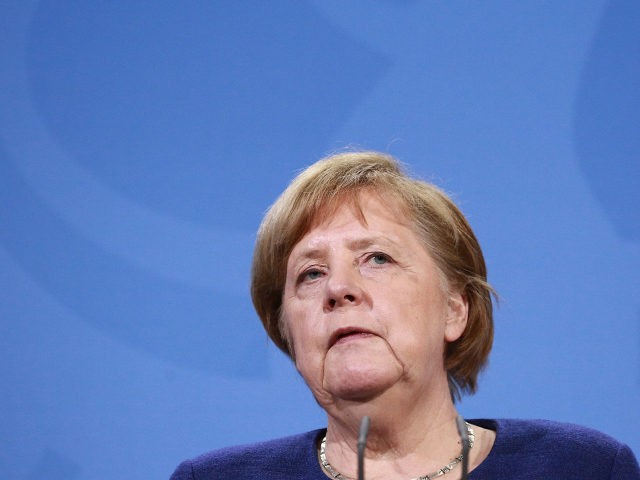A seasoned German journalist has said that his home country is currently experiencing “unfamiliar feelings of post-Brexit envy” as “Brexit Britain races ahead” in its vaccine programme.
Thomas Kielinger, the UK correspondent for the German daily Die Welt, described Germany, hitherto heralded for its “much-attested organisational skill” being hit at “the very core of its psyche” after the United Kingdom, which had only just left the Teutonic nation’s “ersatz identity” the EU, speeding along and vaccinating some 20 million people while Germany struggles to cover a fraction of its population.
Blaming in part the nature of Germany’s governmental structure — 17 states, comprised of 16 regional and one national — Mr Kielinger nevertheless evokes the concerns of Germans who wonder “why couldn’t their leaders come up with an orderly way of distributing the vaccines?”, adding in an opinion piece for Britain’s Telegraph that the country’s former defence minister and current President of the European Commission Ursula von der Leyen, “has hardly improved matters, overseeing a mess in Brussels even worse than that in her homeland”.
In fact, so great has Germany’s anxiety grown over its slow vaccine programme, that it has come up with a word for it: “impfneid” (“vaccine envy”)– the sense of resentment when someone has been vaccinated, but not you.
‘Dear Britain, We Envy You!’: Top German Newspaper Congratulates UK Vaccine Rollout https://t.co/Ljk6wRryj7
— Breitbart London (@BreitbartLondon) February 25, 2021
The remarks follow a recent pattern of German journalists openly criticising and mocking the EU’s and Germany’s failure to roll out a successful vaccine programme, with Europe’s best-selling tabloid Bild penning the headline for an article on the front page of its February 24th print edition: “Dear Britain, WE ENVY YOU!”
In January, Bild had hailed former U.S. President Donald Trump, Israel’s Benjamin Netanyahu, and Britain’s Boris Johnson as “vaccine masters”, adding that “Brexit Boris laid the foundation for vaccination success”. While the German tabloid’s editor Peter Tiede added that the EU’s vaccine fiasco, fueled by a bloated bureaucracy that demanded control of drugs procurement for the whole bloc, was “the biggest confidence-destroying programme in its history”.
Mr Kielinger continued to write that “nobody waxes enthusiastic about the EU any more, and the notion of ever-closer union has evaporated.”
He continued: “But Germans are accustomed to Europe as their ersatz identity and political job description, quite apart from enjoying a club with such significant, if endangered, economic clout. Thus they have only ever conceived of Brexit as an act of extreme, self-inflicted harm. Lately, however, they have been disabused of this notion. John Kampfner’s 2020 book, Why the Germans Do It Better: Notes from a Grown-Up Country has virtually been turned on its head.”
The United Kingdom has overtaken the European Union in the total number of people given a vaccination shot against coronavirus, despite having less than a sixth of the population to inoculate. https://t.co/IgioJRxrwB
— Breitbart News (@BreitbartNews) February 12, 2021
“Eat your gloomy predictions, ye staunch anti-Brexiteers,” said the German Welt correspondent, likely alluding to those in the British establishment media which predicted last year that the UK would fall behind in vaccinating its population because it had left the bloc.
Britain’s Observer — the Sunday newspaper of choice for the anti-Brexit intelligentsia — also hit these themes last week in a self-deprecating piece titled “I hate to say it, but Britain’s doing OK. Even Germany envies us…”.
Taking a tour of the recent headlines which have had diehard-remainers eating their own words, the piece noted: “For diehard Remoaners like me, all this endless good news about jabs and carbon emissions is pretty hard to take… While Eeyorish Mrs Merkel warns of yet another lockdown, with less than 10% of her population vaccinated, our flaxen-haired prime minister leads his nation towards a summer of Weimar excess. Mutti, how could you forsake your fans in Islington like this?”.
Meanwhile in Europe, the bloc’s ‘vaccine solidarity’ has also evaporated, with Austria and Denmark announcing on Tuesday that it would cease to rely solely on Brussels for its vaccine solutions and would work with Israel on the next generation of vaccinations targeting COVID-19 mutations.
Last month Hungary, which strongly criticised the EU’s vaccine rollout, became the first country in Europe to offer the Chinese vaccine after earlier authorising the use of Russia’s Sputnik V.
Germany’s Angela Merkel said at the beginning of February that “every vaccine is welcome in the European Union”, following reports of Sputnik V’s “good data”, adding that she had spoken to Russian President Vladimir Putin about the vaccine.
“And what did the EU do? It created the biggest confidence-destroying programme in its history." https://t.co/2cB314PR74
— Breitbart London (@BreitbartLondon) February 1, 2021

COMMENTS
Please let us know if you're having issues with commenting.